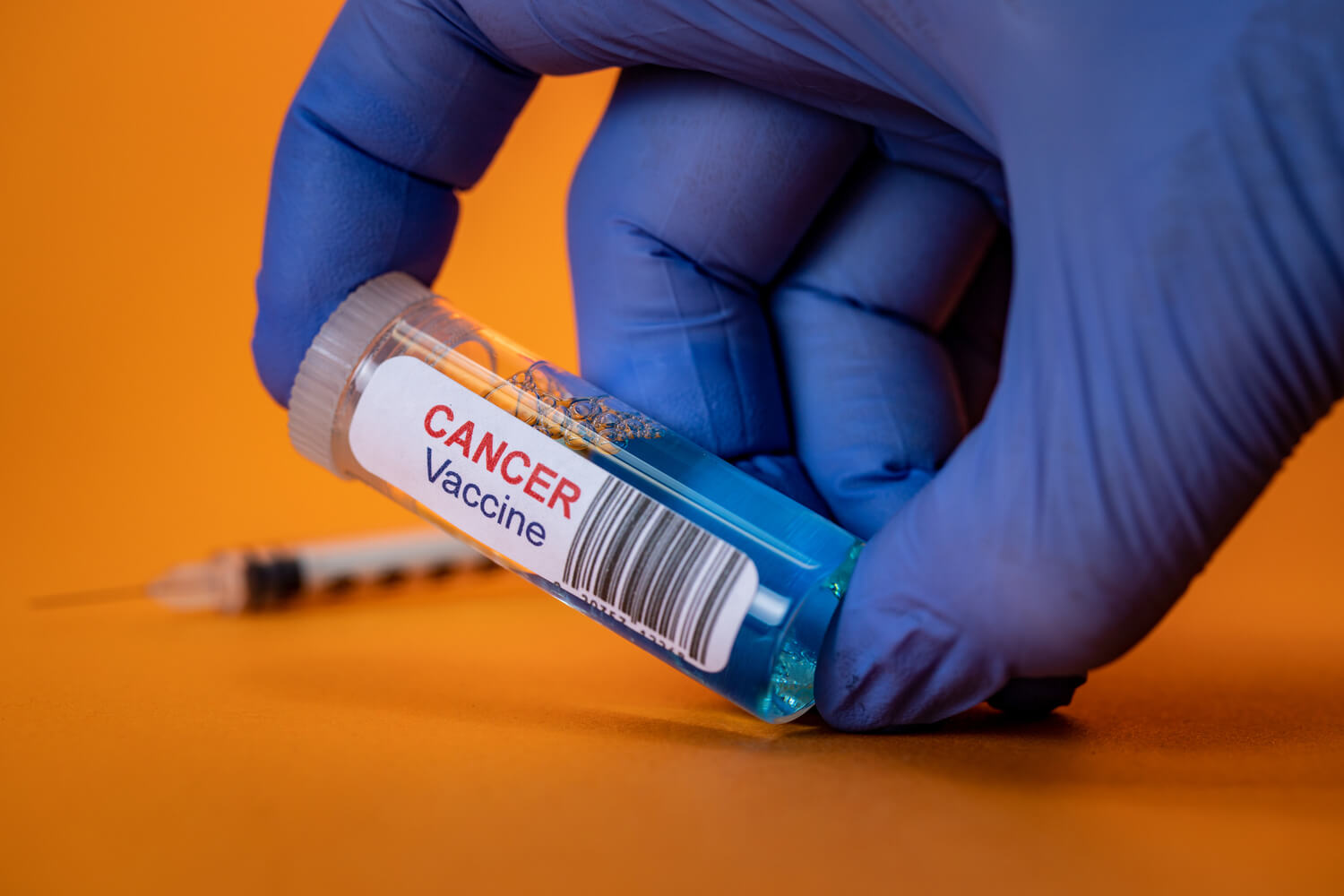Calls for Ukraine
Calls for Europe
Calls for USA

The main methods of cancer treatment are surgery, chemotherapy, and radiation therapy. Unfortunately, none of them can guarantee that the disease will not return even after timely treatment. Therefore, scientists have focused on an approach that would activate the patient’s immune system to fight cancer cells. This is how the first anti-tumor vaccines were developed. They have different mechanisms of action, and each is suitable for specific purposes.
To learn more about this innovative treatment method, we decided to talk with an expert in this field – Natalia Khranovska, head of the experimental oncology research laboratory at the National Cancer Institute of Ukraine, Doctor of Biological Sciences.
Natalia Khranovska defended her doctoral dissertation, which was dedicated to the development of dendritic cell-based vaccines. For this development, she received the State Prize in Science and Technology in 2016.
Dendritic cells are immune system cells also known as antigen-presenting cells. They are the “conductors” of the immune orchestra. They convey information about foreign or mutant proteins to T-killer cells – lymphocytes that destroy pathogenic agents. T-lymphocytes do not “see” the threat; they “understand” which cells to attack only after the dendritic cell presents (shows) it to them.
The complexity of cancer treatment lies in the fact that the tumor develops mechanisms that allow it to protect itself from the immune system. One of these mechanisms is the suppression of dendritic cell function. Scientists approached solving this problem as follows: they isolated precursor dendritic cells from the patient’s bloodstream and allowed them to mature under laboratory conditions. This preserved their functions.
To teach dendritic cells to recognize cancer, researchers added antigens obtained from the patient’s tumor sample to them. Once the grown dendritic cells enter the body, they begin to attack the tumor. Since no two malignant tumors are alike, the vaccine is custom-made for each cancer patient.
Treatment consists of several main stages:
According to Natalia Khranovska, the team of researchers under her leadership managed to achieve a 10-year recurrence-free survival rate in patients with stage 2-3 lung adenocarcinoma. Good results were also obtained for ovarian cancer (some patients survived for 15 years or more) and other types of cancer.
If you are interested in treatment with dendritic cell vaccines, write or call us to get a free consultation. The coordinating doctor will explain in detail how the drug works, determine if you are a candidate for immunotherapy, and help organize the treatment.
Medical experts from MedTour analyzed information on cancer vaccines developed in other countries. The most well-known among them are:
Scientific research in the field of cancer vaccine therapy has been conducted in Ukraine since the 1980s. During this time, several types of cancer vaccines have been developed, proving their effectiveness in clinical trials. One of the most modern drugs in this field is the cancer vaccine marketed under the trade name Cancerax.
There are two types of Cancerax vaccines, differing in their mechanism of action and scope of application.
Vaccines are used to treat various types of cancers, including:
Treatment with Cancerax vaccines allows for a significant increase in recurrence-free survival of patients. Moreover, the cost of the Ukrainian cancer vaccine is much lower than that of foreign analogs.
In fact, there is a lot of information. In recent years, 5 large-scale clinical studies involving more than 1000 cancer patients have been conducted. The authors of the vaccine defended 3 candidate and 3 doctoral dissertations. The drug has received wide recognition at international medical forums. Currently, vaccine therapy is a revolutionary cancer treatment with clinically proven effectiveness.
If you are interested in treatment with the Cancerax vaccine, write or call us to get a free consultation. The coordinating doctor will explain in detail how the vaccines work, determine if you are a candidate for immunotherapy, and help organize the treatment.
What are cancer vaccines and how effective are they? Is this innovative cancer treatment method currently available? Find out more at MedTour.
Please rate the work of MedTour
